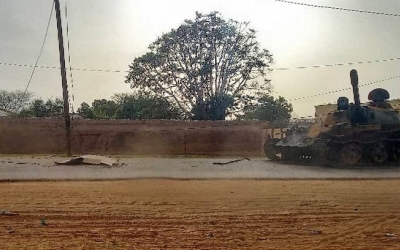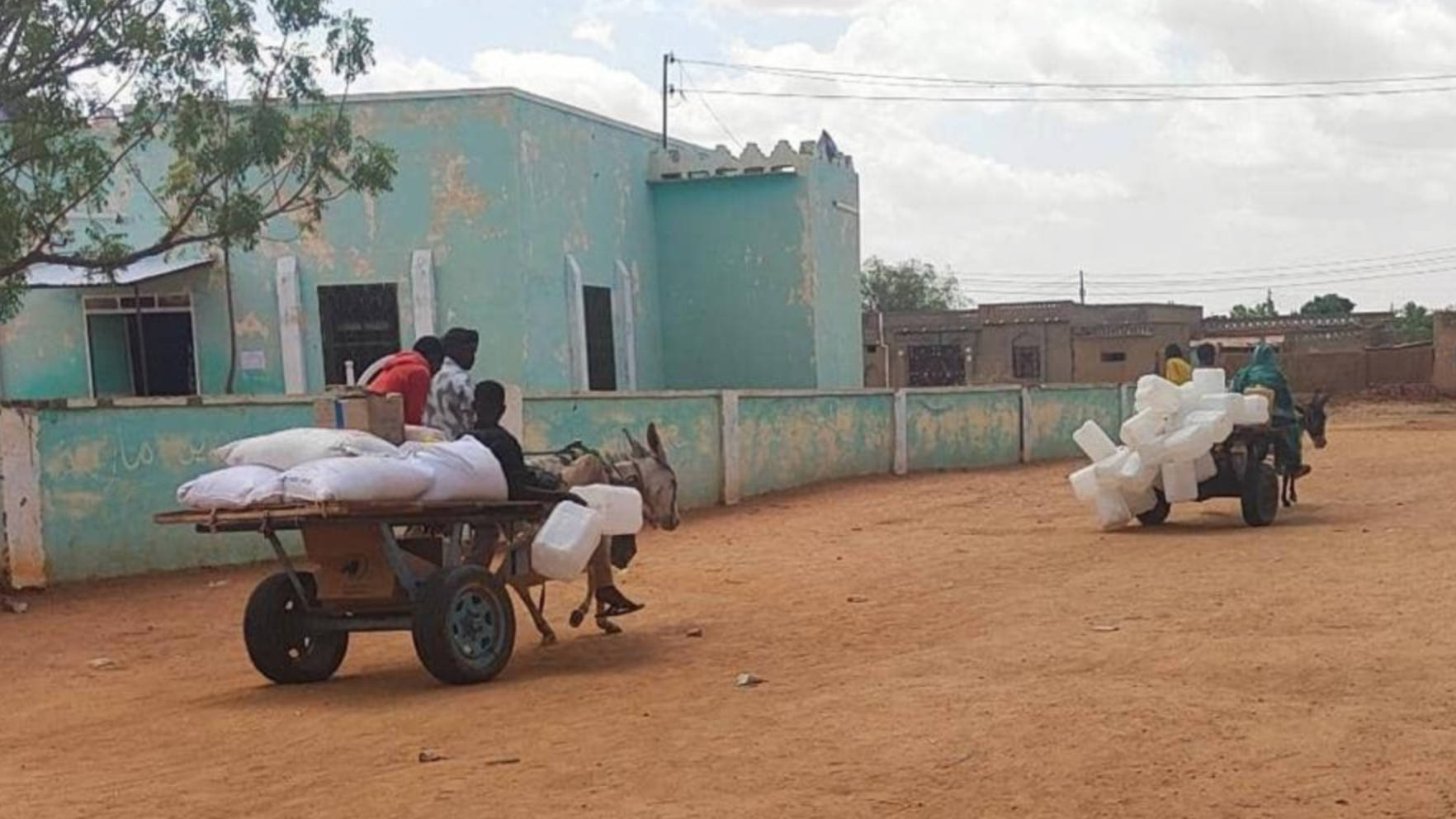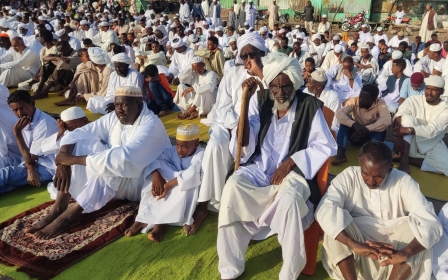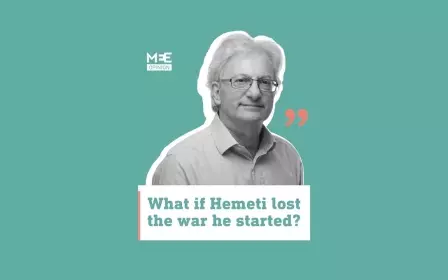Sudan's besieged el-Obeid running out of food, water and fuel
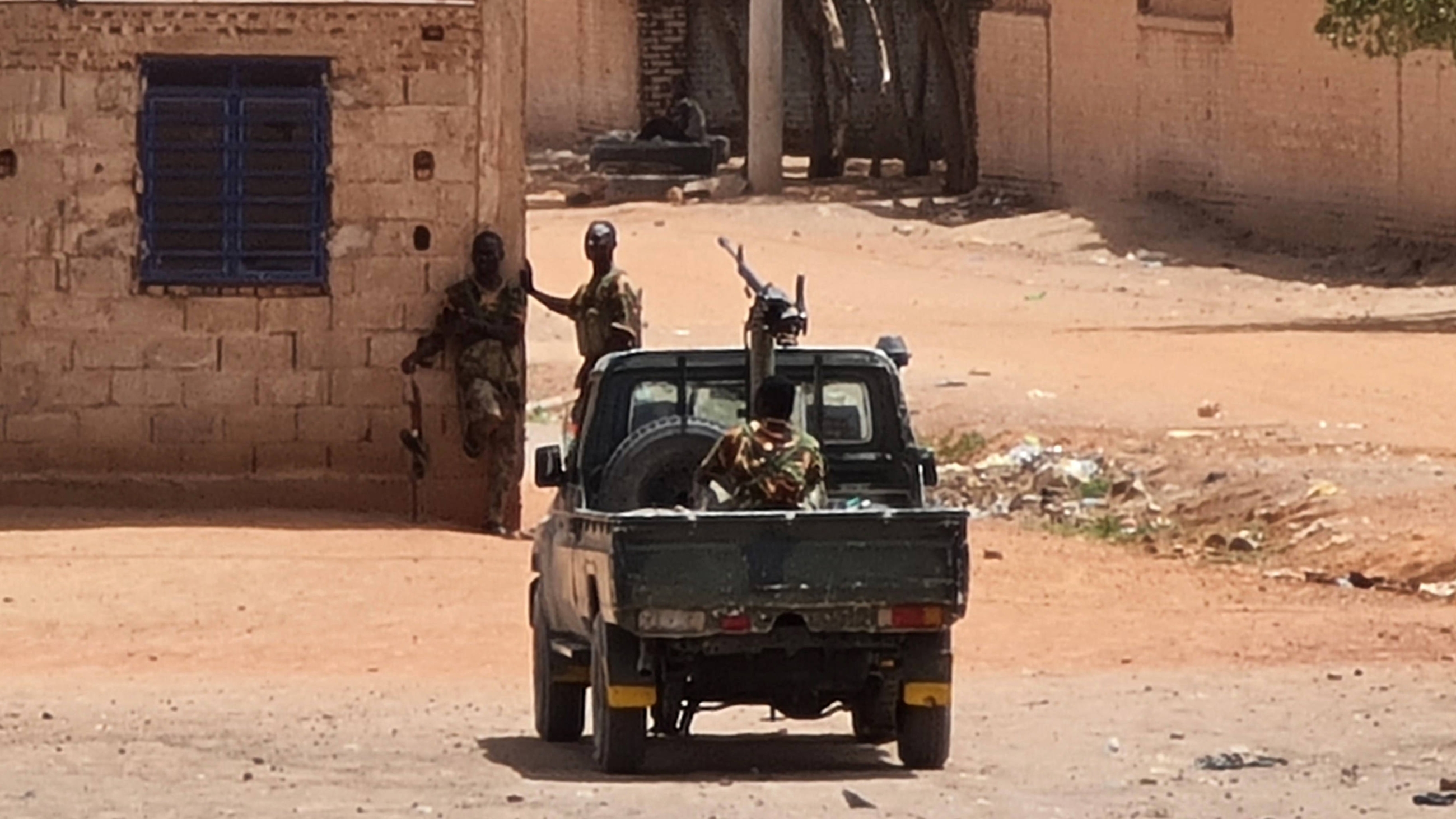
The strategically vital Sudanese city of el-Obeid has been under siege by the paramilitary Rapid Support Forces (RSF) for more than 40 days, according to five local sources and a western military analyst who spoke to Middle East Eye about conditions in the capital of North Kordofan.
Water is not running from taps, food is running out, there was no mains electricity for a month, healthcare facilities have shut down, and fuel is only available at markets, where it is being sold for six or seven times its normal price.
With government employees not working and not being paid, most of el-Obeid’s working population is currently functionally unemployed.
While the Sudanese army has maintained control of its headquarters in the eastern half of the city, the RSF patrols the surrounding countryside and has established roadblocks at every main entry point into el-Obeid.
The paramilitary is looting vehicles that come in and out of the city and has established a tax on people moving between the countryside and the urban neighbourhoods.
New MEE newsletter: Jerusalem Dispatch
Sign up to get the latest insights and analysis on Israel-Palestine, alongside Turkey Unpacked and other MEE newsletters
With army general Abdel Fattah al-Burhan calling for Sudan’s citizens to take up arms against the RSF, the situation his forces face in el-Obeid is typical of that it faces elsewhere in the country: it has been mostly out-fought by the RSF, who have more combat experience, and it is seeking help.
Sources in el-Obeid said they feared Burhan’s decree would make an already bad situation worse.
Local witnesses also say the RSF was behind the looting of the World Food Programme’s (WFP) warehouses in el-Obeid, which took place at the beginning of June and put food assistance for more than 4.4 million people at risk. The looted goods were then transported by civilians to a market to be sold.
The market has been renamed “Dagalo”, after Mohamed Hamdan Dagalo, the RSF chief who is better known as Hemeti.
Meanwhile, one local eyewitness, a sociologist who fled Khartoum with his pregnant wife three weeks after the war between the army and the RSF started on 15 April, told MEE that members of the Sudanese Armed Forces (SAF) had accidentally killed civilians in el-Obeid while drunk.
Under siege
Sitting at the intersection of several roads connecting western and southern Sudan to the capital Khartoum, el-Obeid’s strategic significance has led to it being fought over since the start of the war, with the RSF siege intensifying in recent weeks.
In response, the army’s 5th infantry division, made up of fighters with combat experience, has maintained its headquarters, along with nominal control of the city itself.
'The city has been totally besieged by the RSF for more than 40 days, and the SAF is only watching'
- Ahmed Ali, resistance committee
But with the RSF surrounding the city and blocking entry with checkpoints, a western military analyst, who can’t be named for security reasons, told MEE that the army garrison had “exceeded expectations in defending the city limits, but will likely need reinforcements should RSF assaults continue”.
The RSF has established checkpoints along the western road to En Nahud, the northern road to Omdurman and the eastern road to Kosti, according to civilian and military sources in the area.
“The city has been totally besieged from all four directions by the RSF for more than 40 days, and the SAF is only watching while they protect the army headquarters in the city as well as the airport of el-Obeid,” Ahmed Ali, a leading member of the city’s resistance committee, told MEE.
The resistance committees were the driving force behind the revolution that removed former autocrat Omar al-Bashir in 2019 and have been organising the provision of basic needs for Sudan’s citizens since the most recent war began.
“The RSF is committing many human rights violations against civilians in the state of North Kordofan, as well as in other cities and villages. We can see that the majority of the state is in the hands of the RSF,” Ali said.
In search of water
According to the sociologist, who did not want to be named for security reasons, the humanitarian situation is deteriorating.
“Water is a serious issue here. There is a water shortage because the RSF dominates the water infrastructure, which needs to be repaired. People buy water from donkey carts that carry water barrels,” he said.
Abdullah, a lawyer and jurist in el-Obeid, said the price of water has increased by up to five times, meaning that many people are now seeking water sources outside of the city.
“In most neighbourhoods, water isn’t running from taps... We depend on basic water sources from outside el-Obeid, from the city of Bara - which is about half an hour or more away – as well as villages around el-Obeid, where there are reservoirs that supply the city, and they are under the control of the RSF. Two of them were looted and no longer function,” he said.
There are, Abdullah added, two sources of water within el-Obeid itself: a reservoir in the centre of the city which does not cover its needs and depends entirely on rainwater; and groundwater, which is very salty and not suitable for drinking.
“The electricity was out for almost a month before some of the native administration leaders negotiated with the RSF, who got the supply station repaired,” the sociologist said.
“We were seeing a doctor in Khartoum and switched to another doctor here in a local hospital that has good services – the hospital was run by a generator.”
“The army dominates the city,” he said. “Members of the army operate individually or as small groups in daily life... there have been incidents in which civilians were killed by drunk members of the army.”
“The RSF controls the travel and movement in and out of the city with checkpoints,” the sociologist said. “There are differences in the ways they treat residents of different neighbourhoods. On the west side of the city, they have applied a tax on people who carry goods. In the south, they held up and looted trade.”
Markets for looted goods
While the central market is still trading, many people have lost their sources of income due to the conflict, according to Abdullah.
“All state employees have become unemployed, including us lawyers who are closely linked to state employees, whether in the courts, prosecutions or even the police, which no longer has much presence,” he said
The North Kordofan police clashed violently with the RSF in the second week of the war, resulting in many police and civilian casualties. The lawyer also said that all prisoners in the state prison had been released.
Multiple local and military sources said that the RSF now controls el-Obeid’s topping plant, which is part of Sudan’s oil infrastructure. It does not, however, control a separate refinery facility along the pipeline that runs from South Sudan to Port Sudan.
“The main problem is roads and fuel,” Abdullah said.
'The RSF is distributed along the roads, each separate unit working alone and stealing alone'
- Abdullah, lawyer in el-Obeid
“The main roads linking the city are under the control of the RSF, which is looting and sabotaging, as it has done in the past… All trucks that cross into the city are forced to pay.
"The RSF is distributed along the roads, each separate unit working alone and stealing alone.”
“The looting has caused a rise in the price of goods in general because of losses incurred by traders.”
He added that the price of fuel has had the main impact on the cost of living, with petrol not available at pumps but being sold in markets for six or seven times the usual price.
As in other cities across Sudan, markets for looted goods have opened up in el-Obeid.
“When the warehouses got robbed and looted, for over two weeks some people carried the goods over to a market called Lahza,” the sociologist said. “The ironic thing is that the market name was changed to Dagalo, the name of the RSF leader.”
The market is in the Taiba neighbourhood on the east side of the city.
“They named it after him because the RSF are the ones who broke into the warehouses,” he said. “When people were looting the warehouses, the SAF set up some checkpoints in the streets to divide up the looted goods between them.”
The military situation has convinced some civilian activists that the warring sides are colluding with one another.
“The army hasn’t defended the people of el-Obeid, and that has happened in other Sudanese cities, like el-Geneina,” Isam Abu Sanda, a resistance committee member, told MEE.
“From our limited experience of the military forces, we feel that there is a kind of conspiracy going on between the two sides, particularly in el-Obeid.
“We are not seeing actual battles going on, we are just seeing the two sides handing over locations between them.”
Middle East Eye delivers independent and unrivalled coverage and analysis of the Middle East, North Africa and beyond. To learn more about republishing this content and the associated fees, please fill out this form. More about MEE can be found here.


